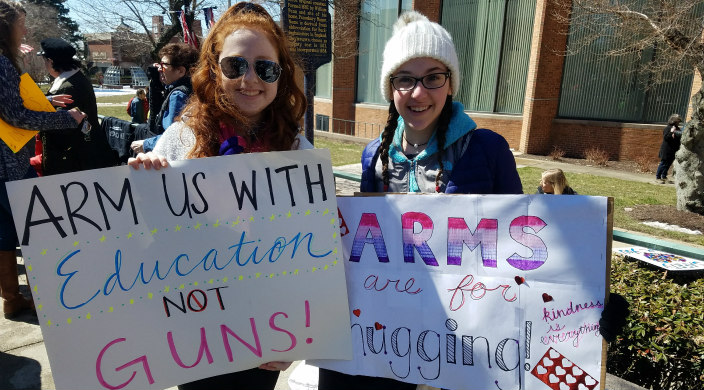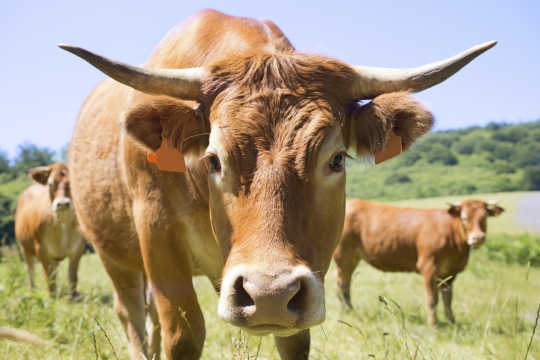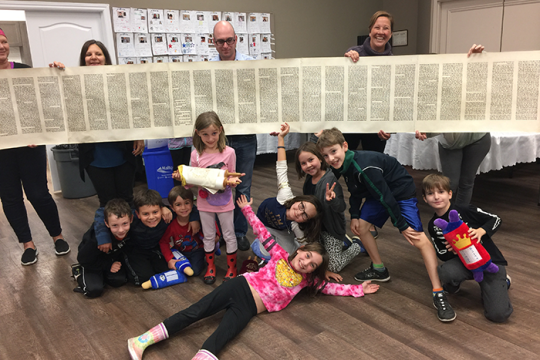
When tragedy strikes, as it did on February 14, 2018 at Marjory Stoneman Douglas (MSD) High School in Parkland, FL, many turn to their religious institutions and clergy to seek answers and comfort. Those in shock want to know “Why?” and “How could this happen to us?”
On that day and the ones that followed, Congregation Kol Tikvah in Parkland, FL, opened its doors to welcome anyone in need of shelter or a refuge from the emotional storm starting to ensue in town. Teens and parents gathered to talk, to pray, to heal, and just to sit and be together in a safe emotional space. Over time, laughter reappeared between tears, and high-fives and fist bumps reappeared between hugs.
One year later our suffering and pain still oscillate among anger, disbelief, and deep sadness for the losses. Not only the loss of 17 young people on the brink of the rest of their lives, but also the loss of our own feelings of safety and trust in public institutions charged to protect us. And let us not forget the stark reminder we received that day that we cannot always protect our children when they leave our arms, even to go to school.
Jewish tradition offers support for healing and grief through liturgy and customs. Healing rituals and services, filled with prayers for peace and praise of God, provide some solace. One particular prayer, Mi Shebeirach, blesses our ancestors and asks to heal suffering:
“May the Blessed Holy One be filled with compassion for their health to be restored and their strength to be revived. May God swiftly send them a complete renewal of body and spirit.”
We understand these words to mean not only physical health and strength, but emotional strength as well. We pray to God to give us the power within ourselves to be resilient and learn to live with the new realities set before us.
Judaism also allows room for questioning and struggling with God. Sometimes bad things happen in our lives but we are not to blame. We did nothing wrong to bring on these circumstances, and God is not punishing us. God is not responsible for the suffering either and, therefore, it is hard to try to understand God’s plan. Looking toward God can help us and give us comfort, and Psalm 121:1-2 helps explain this idea:
“I lift mine eyes to the hills; from where does my help come? My help comes from Adonai, maker of Heaven and Earth.”
On this one-year anniversary of the Parkland shooting, wounds that have not yet fully healed are raw once again. We remember not only lives lost, but also the innocence of an entire generation that is now using its voice to stop gun violence and keep schools safe. While the previous generation participated only in fire drills, today’s students – from kindergarteners through 12th graders – practice lock-down drills that include sheltering in place and hiding in locked closets and bathrooms. Here in Broward County, these drills are conducted monthly and every child, even those as young as 5-years-old, knows the meaning of “Code Red.” Indeed, no one is exempt – from the drills or the knowledge.
Soon, the images of tragedy and death from last February 14 – together with the inspiring stories of the students who are using their voices to make change on local, state and national levels – will appear in history lessons and textbooks. The new non-profit organizations, borne of parents’ grief, will continue to fight for gun violence prevention and school safety.
In the meantime, last Shabbat, five teens from Congregation Kol Tikvah took their voices to Washington, D.C. to participate in a L’taken Social Justice Seminar, a program of the Religious Action Center of Reform Judaism. This coming Shabbat, an MSD high school junior and I, along with our director of youth and family engagement, will travel to Dallas for NFTY Convention and the Youth Summit, lending our voices to gun violence prevention, healing rituals on Shabbat, and action and advocacy.
But first there is today.
Today is a day on which Congregation Kol Tikvah will continue to support our teens and their families, helping them to grieve, advocate for change, come to terms with our new landscape, and struggle with God. Healing is a process, an arduous journey, filled with both strides and setbacks. Being still and doing nothing are not options.



